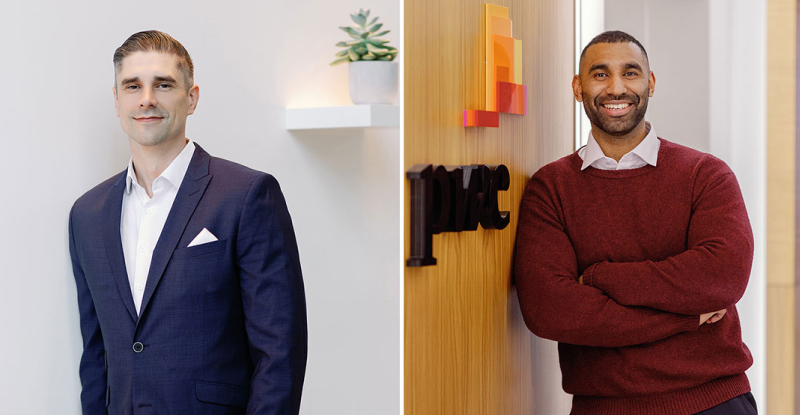
“Am I good enough?”
“Well – I aced that pitch. I landed the contract. And I led a major project to completion. But I’m not sure it was because of my skills or talent. It was probably due to luck. And if I’ve been successful, it’s in the past and it doesn’t really matter anyway. So, am I good enough?”
Women spend a substantial share of their energy and time doubting their skills, talents, and achievements. In fact, 75% of women executives report having done this. Imagine if all of that energy were devoted to affirming our worth and moving on to the next challenge with confidence, instead of chronically tearing ourselves down.
Doubting our skills and achievements is often coupled with a fear of being exposed as a fraud. This pairing is known as the psychological condition imposter syndrome – the persistent inability to believe that our success is deserved or has been legitimately achieved. Imposter syndrome most often affects women and women of colour, particularly high-achieving individuals.
Imposter syndrome can hold us back in our careers. For example, it can cause us not to take on certain projects, not to apply for a promotion, to spread ourselves too thin, or to regularly overwork then crash.
Here are some of my key learnings about imposter syndrome to help others end the cycle of doubt and operate with well-deserved confidence.
The imposter cycle that feels never ending
Imposter syndrome often takes the form of a cycle that looks like this.
- We’re presented with a new opportunity, say a project. Our initial thoughts are full of doubt. We might say to ourselves, “I don’t know. I don’t know if I can do this. I don’t know if I have the necessary skills or abilities to take this on.”
- Our bodies physically react to these feelings of doubt. We might feel the discomfort associated with anxiety or fear, for example, an upset stomach or increased heart rate.
- Our inner critic is activated and we direct negative statements at ourselves. These might sound like, “You don’t have the skills to do this. You’ll never be able to organize all the logistics. You’re not as talented as the rest of the team.”
- We start working on the project, guided by a drive and desire for perfection. We might feel that everything has to be flawless and there’s no room for error.
- We overwork, burn ourselves out, and crash.
- The project is successful.
- We see our accomplishments, but discount our success and doubt our achievements.
- A new opportunity comes along. Now that we’ve discounted our past success, the cycle starts again, with those original feelings of doubt and uncertainty.
Sound familiar? The good news is we can break this cycle.
Audit your inner voice
There’s a lot of negative self-talk with imposter syndrome. It sounds something like this: “I feel like a fake. There’s no room for error. My success is all due to luck. What I accomplished doesn’t really matter.”
One of the most important ways to breaking the cycle is to pay attention to, and change, your inner voice. Every word that you use in talking to yourself has purpose, meaning, and power. So take a look at how you choose to speak to yourself on a day-to-day basis. Write down the top three statements you hear yourself say on repeat. Are they complimentary or critical?
If they’re critical – pay attention to what activates your inner critic and when you most often hear these negative statements. Is it at a certain time of day, when you’re tired, or when you interact with someone in particular? When you pay attention to these patterns and what you’re saying to yourself, you can start to change.
Invest in an investment container
Focusing on your worth will help you to create an inner cheerleader to counter your inner critic. This is where an investment container comes in.
Get a container – a shoebox, a jar, a digital journal – and write down the things you’re good at. Positive feedback you’ve received. What you like about yourself. Skills and strengths. Past achievements. Feelings of courage and hope. Moments you felt content. Learned experiences. Not everything has to be amazing – for example, you could record how you chose to implement a boundary and stuck to it. Put these statements in your container, and keep adding to it. Each positive statement is a testament to your worth and an investment in yourself.
Your investment container serves as a piggy bank of internal validation saved for times when you’re feeling low. When you hear your negative voice or are feeling doubtful, browse through it and counter your inner critic with evidence to the contrary. Your investment container is a consistent source of internal validation. It’s long-lasting and easy to access, as opposed to external validation such as praise from others, which can be fleeting or unreliable.
Accessing your investment container can help you break the cycle of imposter syndrome. Over time, it will build your confidence. You’ll stop thinking of yourself as fake and a new inner voice will cheer you on; you’ll start to believe in your worth and your value because you can see evidence to support it. Our brains need constant reminders to change and your investment container serves this purpose.
Training your brain to hack the imposter cycle
We can also change how we choose to speak to and see ourselves through brain training exercises. However, this isn’t a quick fix, it requires a sustained change. The following can help.
When you encounter negative thoughts or doubts, get specific about them. For example, turn blanket statements like “I’m never prepared enough” into specific questions like, “What do I need to be prepared?” Get your answers from past experiences and the current work and preparation you’ve done.
Use “I” instead of “you” in your inner voice. What can you say instead of, “You’re not good enough?” Try something along the lines of, “I can do this. I add value for being here. I am prepared.” Exercise this voice so you hear positive or constructive statements time and time again, instead of your inner critic.
When you identify a weakness or an area where you think you’ve failed – see it as territory that you have an opportunity to build on. A weakness is actually just an area that you don’t yet have enough information to address or to do what’s required.
Be specific about goals you want to achieve. For example, if you want to dial down your drive for perfection, set out specific, realistic expectations and targets to help you achieve this. For example, try adjusting your standards by showing your work to colleagues early in the process – you might find it’s already good enough. Or create a checklist for each task and move on from each item once it’s checked off. This can help you avoid revisiting the task again and again.
Commit to making a change for a month and create a check in point in two weeks. It’s fine to readjust as you go. For example, you might have a setback and take a couple of days off, then get back to it. At the end, acknowledge what you did.
Get used to sharing your successes
If you don’t already, it’s important to start sharing your successes with others. Why? If you don’t, nobody will know what you’ve achieved. They won’t notice your accomplishments on their own.
If sharing your successes makes you feel uncomfortable, know that this feeling will lessen the more you do it. While it’s true that our culture tends to respond negatively to high-achieving women, this doesn’t change the fact that you are highly skilled and talented, and you have to be able to share what you’ve done to show others you’re capable.
Think of it as sharing positive facts about yourself and your credentials – there’s nothing wrong with sharing. In fact, sharing your credentials is needed to build executive presence and to progress in your career. Here’s to breaking the imposter cycle and moving forward with confidence! For starters, let’s stop asking the question “Am I good enough?”
Author info
Dr. Jessica Metcalfe teaches self-intelligence by sharing the link between imposter syndrome, perfectionism and burnout. Her experience working with cancer patients, her own mental health journey, being a past education director at a world-renowned cancer centre, and getting her life coaching certificate has allowed her to coach hundreds of individuals. She is an award-winning international speaker and has given presentations to numerous international organizations and companies.



